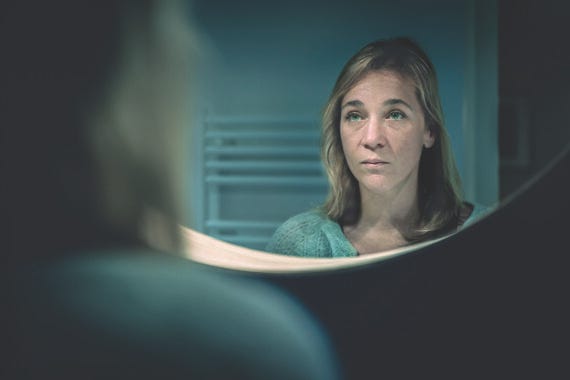institute for
health and tech
transformation (ihtt)
Joaquim Cardoso MSc.
Chief Research Officer (CRO), Chief Editor,
Chief Strategy Officer (CSO), and
Independent Senior Advisor
What is the message?
The central message of the executive summary on depression therapeutics is that depression management is undergoing significant changes and improvements.
It emphasizes the need for healthcare practitioners, particularly General Practitioners (GPs), to adapt to these changes by
- following updated guidelines,
- considering non-traditional treatment approaches, and
- being open to emerging therapies.
The message underscores the importance of staying informed and flexible in order to provide the best care for individuals with depression in a rapidly evolving field of understanding and treatment.

One page summary
Dr. Peter Bagshaw provides a comprehensive review of the latest developments in depression management, offering practical advice for busy General Practitioners (GPs) and insights into emerging treatment options. Key Highlights from NICE Guidelines (June 2022)
- Assessment of Suicidal Ideation: Always inquire directly about suicidal thoughts in depressed patients and provide appropriate help. Refer urgently to specialist mental health services for those at immediate risk.
- Agitation and Treatment Review: Monitor patients for marked or prolonged agitation, considering alternative medications like mirtazapine and lofepramine for their sedative properties.
- Treatment Efficacy Review: Reevaluate treatment effectiveness after two to four weeks or earlier for patients under 25 or at risk of suicide. Emphasize monitoring treatment concordance and potential side effects.
- Antidepressant Addiction and Withdrawal: Antidepressants are not addictive in the traditional sense but can cause withdrawal symptoms. Inform patients about the need to reduce doses gradually. Paroxetine and venlafaxine are more likely to induce withdrawal symptoms.
- Combination Therapy: Combinations of antidepressants are used by some practitioners but are not covered by NICE guidelines.
- Antidepressant Selection in Older Patients: Sertraline is the preferred option for older patients, with mirtazapine as an option for sedation.
Reevaluation of Traditional Concepts
- The Serotonin Theory: A review in July 2022 challenges the serotonin theory’s role in depression, suggesting that current antidepressants may offer only temporary relief rather than addressing underlying causes.
- Non-Drug Therapies: Given doubts about antidepressant efficacy, non-drug therapies like Cognitive Behavioral Therapy (CBT) gain popularity.
Innovations in Depression Management
- Digital Therapies: NICE has approved digital tools for treating depression and anxiety, offering quicker access to NHS services. These tools incorporate CBT techniques, bridging the gap between traditional therapy and technology.
- Brexanolone: FDA-approved for post-partum depression, brexanolone raises GABA levels in the brain, offering a novel approach to treatment.
- Esketamine: A relative of ketamine, esketamine is FDA-approved for treatment-resistant depression, particularly in patients at risk of suicide, where standard antidepressants may be less effective.
- Psychedelics: Substances like psilocybin, mescaline, LSD, and MDMA are under investigation for their potential in treating depression, with some promising results.
- Vagal Nerve Stimulation and rTMS: These neuromodulation techniques show promise in improving the quality of life and reducing suicidality among treatment-resistant depression patients.
Conclusion
Depression management is evolving with new insights and treatment options. GPs should stay updated with NICE guidelines, consider non-traditional approaches, and be open to emerging therapies to provide the best care for their depressed patients in an ever-evolving landscape of understanding and treatment.
DEEP DIVE

Therapeutics update: Depression
Pulse
01 September 2023
Dr Peter Bagshaw reviews the latest thinking in depression management, offers practical advice to busy GPs and looks at what’s on the horizon
NICE guidelines on depression in adults were updated in June 2022.1 Highlights include:
- Always ask people with depression directly about suicidal ideation and intent. Arrange help appropriate to the level of need and advise them to seek further help if the situation deteriorates. If a person with depression presents immediate risk to themselves or others, refer urgently to specialist mental health services.
- Review treatment if people develop marked or prolonged agitation. The guidelines give no specific advice, but fluoxetine can worsen agitation. Paroxetine, mirtazapine and tricyclics are more sedative. I rarely use tricyclics because of safety and overdose concerns. NICE says lofepramine has the best safety profile.
- Review treatment efficacy after two to four weeks, or after one week if the person is under 25 years old or at risk of suicide. NICE advises monitoring treatment concordance, unwanted effects of treatment and suicidal ideation, particularly in the early weeks. Ensure patients have written information.
- Patients often ask if antidepressants are addictive. They do not give rise to classic addictive behaviour such as seeking to increase the dose, but we need to warn about withdrawal side-effects. Explain that it is necessary to reduce the dose in stages, but that most people stop antidepressants successfully. Explain withdrawal symptoms usually appear within a few days of reducing or stopping, and go away within two weeks, but can last longer and can be severe, particularly if the medication is stopped suddenly. Paroxetine and venlafaxine are more likely to cause withdrawal symptoms. Antidepressants can make both bipolar disease and suicidal ideation worse.
- Some GPs and psychiatrists use combinations of antidepressants. However, there is little information about the safety of these drugs in combination, and combining drugs is not covered by NICE.
- NICE gives guidance on which antidepressant should be used in older people.2 Sertraline is the least toxic in this group, with mirtazapine if sedation is required.

What’s old?
The serotonin theory
A review published in July 2022 stated: ‘The main areas of serotonin research provide no consistent evidence of an association between serotonin and depression’.3
The review included reports of emotional blunting in around half of patients taking SSRIs4 and the growing suspicion that, rather than being a ‘magic bullet’ that corrects an underlying cause of depression, our current alphabet soup of MAOIs, TCAs, SSRIs, SNRIs NASSAs and SARIs provide only a sticking plaster solution, an ‘emotional analgesic’.
We now have guidance that drug therapy should not be used for mild to moderate depression, and we should explain potential side-effects and withdrawal risk when we do.
The questions about antidepressant efficacy may further increase the popularity of non-drug therapies such as cognitive behavioural therapy (CBT).
Newer drugs are moving away from the serotonin model.

What’s new?
Digital therapies
Earlier this year NICE published a list of approved digital providers for Improving Access to Psychological Therapies (IAPT) providers (now rebranded as NHS talking therapies).5
NICE has also approved the use of nine digital tools for treating depression and anxiety in adults to speed up access to NHS services. These include apps or websites that use CBT techniques with the support of an NHS talking therapies clinician or psychological wellbeing practitioner. Three tools are for people with depression and six for anxiety.
The guidance rates the cost-effectiveness of non-drug options. Some now believe that expecting drug treatment to cure mental health problems may be as unhelpful as putting people with chronic pain onto ever stronger analgesics. One of the drivers for investigating novel therapies in treatment resistant disease is that they do not seem to cause the increased risk of suicide in depression, particularly in bipolar disease, associated with current drug therapies.
Brexanolone
Brexanolone, which raises brain levels of the neurotransmitter gamma aminobutyric acid (GABA), has been approved by the FDA for use specifically in post-partum depression.
Esketamine
Esketamine, a chemical cousin of ketamine, has been approved by the FDA for use in treatment-resistant depression. To many of us, ketamine is viewed as a powerful anaesthetic associated with abuse and serious side-effects such as ketamine bladder. But studies say ‘the overall tolerability of intranasally administered esketamine in trials is good’ and it is ‘effective in decreasing the severity of short-term depressive symptoms’,6 and particularly useful in patients at risk of suicide, where standard antidepressants can increase the risk initially.
Psychedelics
Other drugs we might associate more with illegal use such as mescaline (peyote cactus), psilocybin (magic mushrooms), LSD and MDMA (ecstasy) are also being researched. The European Medicines Agency has approved psilocybin in a study of treatment-resistant depression.7
Vagal nerve stimulation
Vagal nerve stimulation has been ‘found beneficial in improving quality of life and suicidality among unipolar treatment-resistant disease (TRD) patients and depression among bipolar TRD patients’,8 while for repetitive transcranial stimulation (rTMS) NICE comments that ‘the evidence for depression shows no major safety concerns. The evidence on its efficacy in the short term is adequate’.1
Depression is hugely debilitating and distressing to our patients. With paradigm shifts in thinking (such as its link with inflammation, the gut-brain axis or insulin resistance) an already challenging condition looks set to become more complex.
Resisting the urge to reach for a prescription, remembering NICE guidelines, and being open to new, often counterintuitive, approaches are key to doing our best for our patients who have depression.
References
- NICE. Depression in adults: treatment and management. NG222. June 2022. Link
- Mental Health in Older People: a practice primer. Link
- Moncrieff J. et al, The serotonin theory of depression: a systematic umbrella review of the evidence Mol Psychiatry 2022 Link
- Cronquist C The Motivation and Energy Inventory (MEI): Analysis of the clinically relevant response threshold in patients with major depressive disorder and emotional blunting using data from the COMPLETE study Journal of Affective Disorders 2023 323. Link
- NHS Talking Therapies. Link
- Vasiliu O. Esketamine for treatment‑resistant depression: A review of clinical evidence (Review) Experimental and Therapeutic Medicine, Jan 2023. Link
- Nutt, D. Psychedelic drugs — a new era in psychiatry? Dialogues in Clinical Neuroscience, 21:2, 139–147 2019. Link
- Lojine, Y. Vagal nerve stimulation: an update on a novel treatment for treatment resistant depression. Journal of the Neurological Sciences vol 434 Mar 2022. Link
Names mentioned:
Dr Peter Bagshaw












